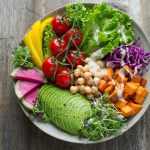The Ultimate DIY Smoothie Guide: Nutrient-Packed Recipes for Every Goal
Creating the perfect smoothie can be a game-changer for one’s health and wellness journey. Whether it’s boosting energy, promoting weight loss, or simply enjoying a nutritious snack, smoothies offer a versatile and delicious option. This guide offers nutrient-packed recipes tailored to different health goals, transforming simple ingredients into powerful health allies.
Understanding various smoothie components and how they contribute to health goals unlocks a world of culinary creativity and nutritional benefits. By mixing fruits, vegetables, and healthy proteins, each recipe in this guide is carefully designed to ensure it provides maximum health advantages. Readers will find easy-to-follow recipes that cater to diverse needs, such as detoxification, muscle gain, or enhanced immunity.
From antioxidant-rich berries to protein-packed seeds, the power of smoothies lies in their adaptability and nutrient richness. Ingredients included in the recipes are readily available, ensuring convenience without compromising on nutritional value. With this resource, anyone can enjoy vibrant smoothies tailored to meet personal health aspirations, offering an easy path to well-being.
Essentials of a Nutrient-Packed Smoothie
A nutrient-packed smoothie combines key elements to support health goals. Balancing macronutrients, understanding the role of micronutrients, and selecting optimized liquid bases are crucial to crafting a nutrient-rich blend.
Balancing Macronutrients
A well-balanced smoothie incorporates carbohydrates, proteins, and fats. Carbohydrates provide quick energy; fruits like bananas or berries are excellent choices. Proteins support muscle repair and growth, with options like yogurt or nut butter providing a creamy texture. Including healthy fats such as avocado or flaxseeds ensures satiety and aids nutrient absorption.
Selecting ingredients with complementary flavors can enhance the appeal of the smoothie. It’s important to align the balance of macronutrients with personal dietary goals. For those focused on muscle building, increasing the protein content is key, while those seeking weight management might prioritize a lower carbohydrate count.
Role of Micronutrients
Micronutrients including vitamins and minerals play essential roles in maintaining health. Leafy greens like spinach or kale are rich in vitamins A, C, and K. They offer a wealth of antioxidants, supporting immune function and reducing inflammation. Minerals such as calcium and iron can be sourced from dairy or fortified plant-based alternatives.
Incorporating colorful fruits and vegetables ensures a broad spectrum of nutrients. Berries, packed with antioxidants and fiber, are excellent additions. Adding a tablespoon of chia seeds not only introduces healthy fats like omega-3s but also contributes to fiber intake. Probiotics in fermented ingredients like kefir can support gut health, enhancing digestion and nutrient absorption.
Optimizing Liquid Bases
Choosing the right liquid base sets the tone for flavor and texture. Coconut water is hydrating and contains electrolytes, making it ideal for post-workout recovery smoothies. For a creamier texture and added protein, yogurt or milk – dairy or plant-based – are excellent options.
Water or ice can be used for simple hydration without altering flavor profiles significantly. The chosen liquid should complement the nutritional needs and taste preferences of the individual. Ensuring a good balance between liquid and solid ingredients helps achieve the desired consistency. Tailoring the liquid choice allows for a versatile and personalized smoothie-making experience.



